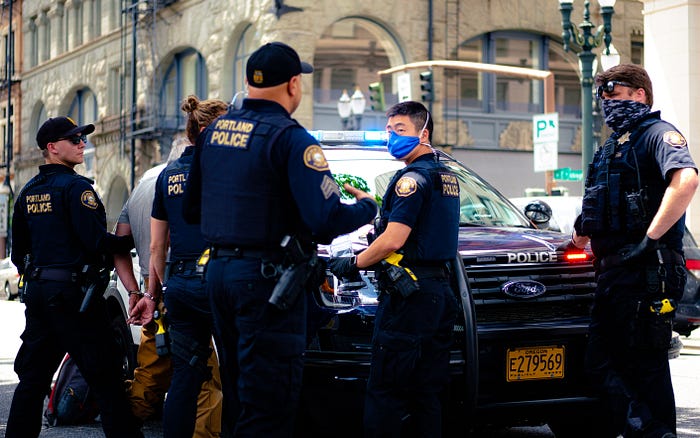Does creating a healthy relationship between the community and law enforcement result in a safer environment?

Since the death of George Floyd, there are seemingly endless amounts of cases highlighting police officers abusing their power. There is no question whether or not the job of a police officer is complicated and stressful, but are police officers abusing their power, and why are relationships between the community and law enforcement important?
When looking at reports pertaining to the rate of misconduct committed by police officers, there is a seemingly low rate of occurrences. According to the Stroud Law Firm, one out of every 135.8 police officers across the nation will be implicated in the media for a criminal act or an act of misconduct, a rate of around 0.7%. While this rate does not seem high, due to the frequency of civilian-police interactions the number of misconduct occurrences quickly add up.
The University of Illinois Chicago found that in one year, there are more than 50 million persons in the U.S. who have come in contact with police during a traffic stop, street stop, arrest, traffic accident or resident-initiated contact.
With such immense amounts of contact between civilians and police, what can be done to lessen the amount of misconduct cases reported?
There are many different approaches to solving the problem of stopping law enforcement from abusing their power and committing acts of misconduct, however, one of the most agreed upon strategies to achieve this is fostering a healthy relationship between law enforcement and
the community they serve.
An article published by the U.S. Department of Justice on the Importance of Police-Community Relationships and Resources for Further Reading implores the importance of a strong relationship built on mutual trust and respect between police agencies and the communities they serve.
This article focuses on the key aspects needed to maintain public safety and enforce effective policing. Some of the aspects discussed include the promotion of discussion and collaboration between communities and law enforcement, transparency and accountability of law enforcement officers, and respect for police officers and different cultures that exist within the community.
All of the aspects discussed in the article play a critical role in maintaining a healthy relationship between civilians and public servants, but the key factor to achieve a strong relationship is the respect for law enforcement and cultures that exist within the community.
The Cato Institute investigated the factors that contribute to the kind of interaction experienced by a civilian when interacting with police. To investigate, the author created a Respect for Authority Index (RAI), a composite scale based on averaging responses to questions that measured people’s general respect for authority. The higher the RAI score is, the more apt the individual is to respect authority.
The conclusion of the investigation found that across the board individuals with a higher RAI score are less likely to report police swearing at them and being disrespectful. The report also found that those with low RAI scores are three times as likely as whites with high RAI scores to report an experience with police profanity, 27% versus 9%.
Highlighting the importance of having respect for authority, the investigation supports the importance of having a healthy relationship between law enforcement and the community. A main contributor in determining the extent of how healthy a relationship is by calculating how much mutual respect exists between the parties in the relationship. The greater amount of respect there is, the healthier the relationship is.
Understanding the importance of maintaining a respectful relationship between the community and law enforcement is crucial in combating misconduct committed by officers.
Fostering a healthy community relationship that is built on trust between civilians and officers will remove some of the stigma held against officers, and lessen the burden on law enforcement doing their job. This would result in more positive engagement between officers and civilians, and encourage safe and productive encounters.
To touch back on the original question asked in the beginning of this article, “does creating a healthy relationship between the community and law enforcement result in a safer environment?”, the answer is yes.
The creation of a healthy relationship between the community and law enforcement directly results in a safer environment because of the trust and respect that is built between the two parties. It is essential for all parties to comply with the need for respect, and in turn we will be able to create a safer America.
(contributing writer, Thomas Haber)